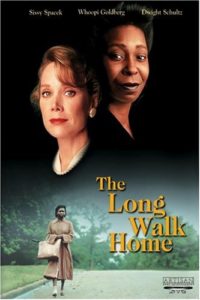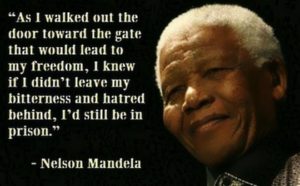“Journey” is a powerful motif in many of our human stories. In the tales we tell we often see ourselves as people in process; people on the way. Sometimes we know where we want to go but often we only have the vaguest notion of where we will end up.
Because life is a journey with zigs and zags, with mountain tops and valleys, with stormy days or peaceful nights, our best stories reflect on the meaning of where we have been, where we are going and where we find ourselves on the way.
Joseph Campbell studied Hero Myths from many cultures and taught us how this arch type functions – not only in our stories but within our lives individually and together as societies. The Hero’s Journey brings transformation. Traveling into the unknown, experiencing and surviving the dangers, finding wider wisdom that puts our lives into perspective – this long walk of the Hero’s Journey brings her “home” again; but the person who returns has become stronger, wiser and more resilient than the person who first began the journey.
“The Long Walk Home” i s a movie set in Montgomery Alabama during the bus boycott of the 60’s. The title refers to the long miles Black housemaids had to walk to and from work when they refused to ride the city buses. But the second meaning alludes to the journey two women make together – one Black and one White – as they helped carve new paths for America during the Civil Rights Movement.
s a movie set in Montgomery Alabama during the bus boycott of the 60’s. The title refers to the long miles Black housemaids had to walk to and from work when they refused to ride the city buses. But the second meaning alludes to the journey two women make together – one Black and one White – as they helped carve new paths for America during the Civil Rights Movement.
“The Long Walk to Freedom” is the title of Nelson Mandela’s autobiography and President Obama made frequent reference to the “long walk” of Mandela’s life in the speech he gave on the occasion of Mandela’s 100th birth day.
It was in service of this long walk towards freedom and justice and equal opportunity that Nelson Mandela devoted his life. At the outset, his struggle was particular to this place, to his homeland – a fight to end apartheid, a fight to ensure lasting political and social and economic equality for its disenfranchised non-white citizens. But through his sacrifice and unwavering leadership and, perhaps most of all, through his moral example, Mandela and the movement he led would come to signify something larger. He came to embody the universal aspirations of dispossessed people all around the world, their hopes for a better life, the possibility of a moral transformation in the conduct of human affairs.
 Mandela’s hero’s journey – like all hero journeys – included hardship, obstacles and detours. Probably he had a vision of where he wanted to go on this long walk but I doubt even he could have imagined where he would end up.
Mandela’s hero’s journey – like all hero journeys – included hardship, obstacles and detours. Probably he had a vision of where he wanted to go on this long walk but I doubt even he could have imagined where he would end up.
This notion of a “long walk” offers the perfect metaphor for concerned Americans during these recent days of obstacles and detours. Those of us who are resisting this administration and its policies struggle to keep our balance in the turmoil of each day’s tumultuous news cycles. We are tired, angry and on the brink of burn out.
That’s exactly why we must emulate the long walk of those resisters who have gone before us. We need to learn from them; learn how to keep on walking the walk, keep on protecting our hearts, keep on keeping on.
Mr. Obama reminded us how important this is.
We have to follow Madiba’s example of persistence and of hope.
It is tempting to give in to cynicism: to believe that recent shifts in global politics are too powerful to push back; that the pendulum has swung permanently. Just as people spoke about the triumph of democracy in the 90s, now you are hearing people talk about end of democracy and the triumph of tribalism and the strong man. We have to resist that cynicism.
Because, we’ve been through darker times, we’ve been in lower valleys and deeper valleys. Yes, by the end of his life, Madiba embodied the successful struggle for human rights, but the journey was not easy, it wasn’t pre-ordained …
America has walked through the valley of the shadow of death many times as a nation. This detour is dangerous and damaging but it need not be the end of democracy and the triumph of tribalism. I believe these days offer a powerful opportunity to learn new ways and carve new paths for the future just as the heroes of our past did for us.
 In order to do that, though, we must remember the journey. We are not going to get “there” any time soon. We will still be in process for a long time to come, but we trust that this challenging process will make us stronger, wiser and more resilient.
In order to do that, though, we must remember the journey. We are not going to get “there” any time soon. We will still be in process for a long time to come, but we trust that this challenging process will make us stronger, wiser and more resilient.
So we keep a steady pace, run when we need to and rest when we can. We find companions along the way so that we may both give and receive encouragement. We accept the reality of this current hardship, knowing we can’t wish it away. Blaming others is not helpful; we build alliances instead. And we don’t waste our breath cursing this darkness; we use our energy to light more candles.
This is not a 100 yard dash; this is a long walk. So let’s lace up our walking shoes and continue the journey with persistence and hope. We must all be heroes these days.
Read President Obama’s 2018 speech here.
Watch it here. (1 hour 24 minutes)